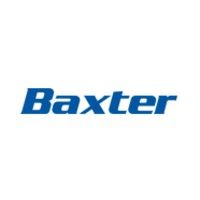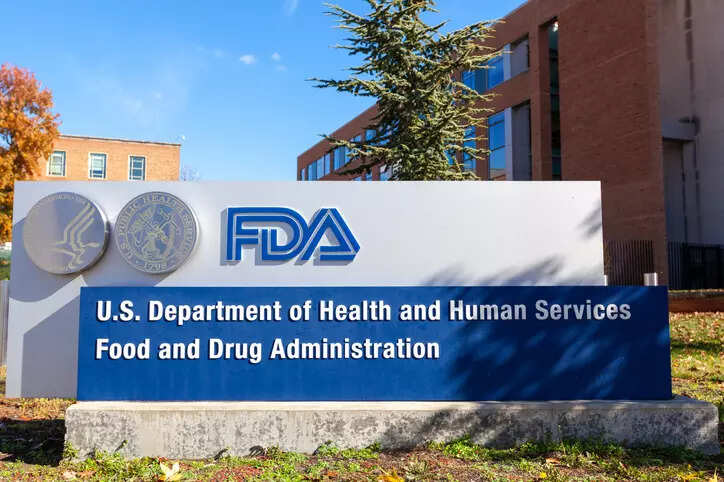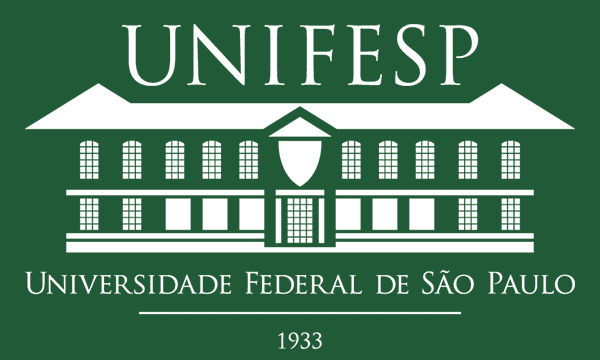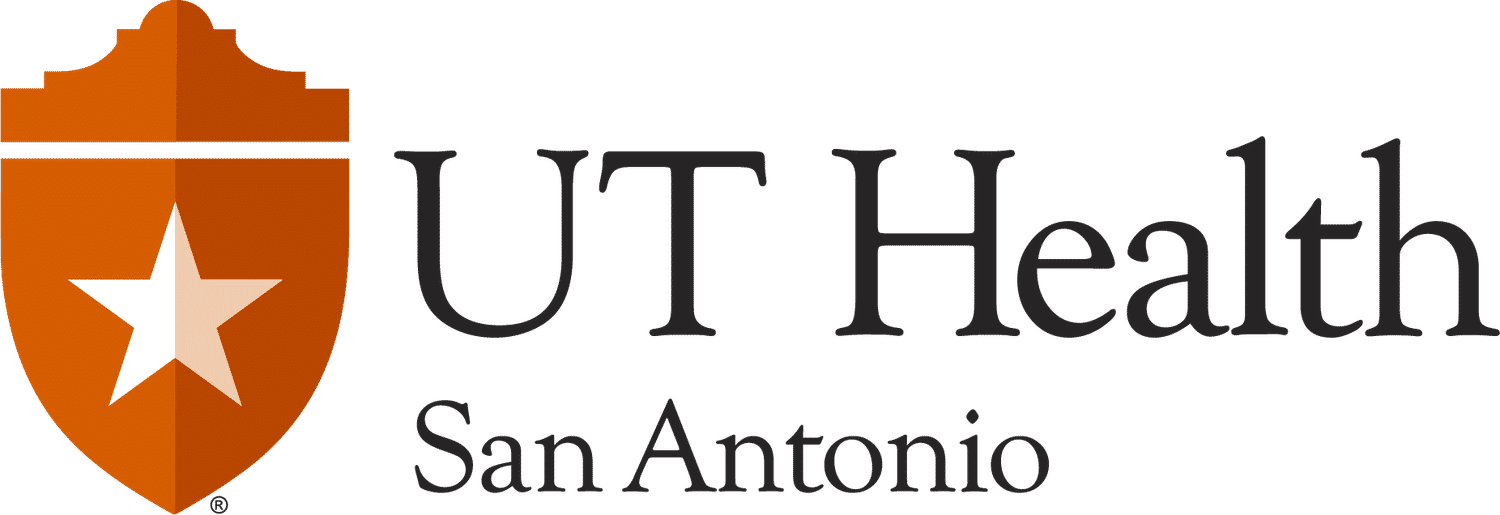预约演示
更新于:2025-08-14

Baxter Healthcare Ltd
更新于:2025-08-14
概览
标签
其他疾病
遗传病与畸形
血液及淋巴系统疾病
血液提取物
小分子化药
酶
疾病领域得分
一眼洞穿机构专注的疾病领域
暂无数据
技术平台
公司药物应用最多的技术
暂无数据
靶点
公司最常开发的靶点
暂无数据
| 疾病领域 | 数量 |
|---|---|
| 血液及淋巴系统疾病 | 1 |
| 排名前五的药物类型 | 数量 |
|---|---|
| 血液提取物 | 2 |
| 小分子化药 | 1 |
| 酶 | 1 |
关联
3
项与 Baxter Healthcare Ltd 相关的药物靶点 |
作用机制 ELA2抑制剂 |
原研机构 |
在研适应症 |
非在研适应症 |
最高研发阶段批准上市 |
首次获批国家/地区 美国 |
首次获批日期2002-12-23 |
作用机制 ATP2C1 blockers [+2] |
在研适应症 |
非在研适应症- |
最高研发阶段批准上市 |
首次获批国家/地区 美国 |
首次获批日期1992-09-18 |
作用机制 F10调节剂 [+4] |
原研机构 |
非在研适应症- |
最高研发阶段批准上市 |
首次获批国家/地区 美国 |
首次获批日期1979-12-21 |
335
项与 Baxter Healthcare Ltd 相关的临床试验NCT06937216
Evaluation of the Effectiveness of The Volara System Determined by Sputum Movement and Production
The aim of this study is to evaluate the therapeutic effect of therapy with The Volara System on mucus clearance.
开始日期2025-05-01 |
申办/合作机构 |
NCT06777446
Elective Adhesiolysis vs. a Wait-and-see Policy to Prevent Recurrences After Conservative Treatment of Adhesive Small Bowel Obstruction
Rationale: Adhesive small bowel obstruction (aSBO) is a frequent surgical emergency, associated with 3-8% hospital mortality and a high risk of recurrence (20% at two years of follow-up). ASBO can be treated conservatively or by emergency surgery. In the absence of bowel ischemia or strangulation, conservative treatment is often preferred, to avoid the excess morbidity and mortality from emergency surgery. Recent epidemiological studies, however, demonstrate a considerable higher recurrence risk of aSBO after conservative treatment that is associated with hospital readmissions and lower survival. Elective adhesiolysis following successful conservative treatment might reduce these long-term risks whilst avoiding the high complication rate of emergency surgery.
Objective: The investigators aim to assess the efficacy of elective adhesiolysis following conservative treatment for aSBO as compared to the current state of the art (wait-and-see policy) to prevent long-term recurrence of aSBO. Further the investigators will evaluate quality of life, healthcare and societal costs.
Study design: Multicenter open-label randomized controlled trial, including 380 patients.
Study population: Adult patients who recovered from aSBO by conservative treatment. Patients that are inoperable for medical, anaesthesiological or surgical reasons are excluded. Intervention (if applicable): The intervention of investigation is elective adhesiolysis. Adhesiolysis is an abdominal procedure in which all adhesions are cut, and adhesion prevention applied to reduce the risk of adhesion reformation. The intervention is compared to wait-and-see policy (the current standard treatment)
Main study parameters/endpoints: Primary outcome is recurrence, defined as readmission for obstructive systems with aetiology of adhesions confirmed by CT. The investigators hypothesize a 50% reduction in recurrence in the intervention arm. Secondary outcomes are morbidity from surgery, health-related quality of life (EQ5D), healthcare costs and societal costs (iMCQ and iPCQ)
Nature and extent of the burden and risks associated with participation, benefit and group relatedness:
Patients in the intervention group are exposed to abdominal surgery, which is associated with a moderate risk of minor complications such as wound infection and haemorrhage, and a small risk of severe complications such as iatrogenic bowel injury. According to our hypothesis, a potential benefit is the reduction in the risk of recurrences. Recurrence of aSBO is associated with a risk of readmissions, reinterventions, and also increased long-term mortality.
Objective: The investigators aim to assess the efficacy of elective adhesiolysis following conservative treatment for aSBO as compared to the current state of the art (wait-and-see policy) to prevent long-term recurrence of aSBO. Further the investigators will evaluate quality of life, healthcare and societal costs.
Study design: Multicenter open-label randomized controlled trial, including 380 patients.
Study population: Adult patients who recovered from aSBO by conservative treatment. Patients that are inoperable for medical, anaesthesiological or surgical reasons are excluded. Intervention (if applicable): The intervention of investigation is elective adhesiolysis. Adhesiolysis is an abdominal procedure in which all adhesions are cut, and adhesion prevention applied to reduce the risk of adhesion reformation. The intervention is compared to wait-and-see policy (the current standard treatment)
Main study parameters/endpoints: Primary outcome is recurrence, defined as readmission for obstructive systems with aetiology of adhesions confirmed by CT. The investigators hypothesize a 50% reduction in recurrence in the intervention arm. Secondary outcomes are morbidity from surgery, health-related quality of life (EQ5D), healthcare costs and societal costs (iMCQ and iPCQ)
Nature and extent of the burden and risks associated with participation, benefit and group relatedness:
Patients in the intervention group are exposed to abdominal surgery, which is associated with a moderate risk of minor complications such as wound infection and haemorrhage, and a small risk of severe complications such as iatrogenic bowel injury. According to our hypothesis, a potential benefit is the reduction in the risk of recurrences. Recurrence of aSBO is associated with a risk of readmissions, reinterventions, and also increased long-term mortality.
开始日期2025-02-01 |
申办/合作机构 |
NCT06695169
Comprehensive Evaluation of the Integrated Smart Pump-EHR Technology in Eight Adult Acute and Intensive Care Units: A Mixed Method Study
This study looks at the effects of using "smart pumps" that connect with the Electronic Health Record (EHR) in 8 adult ICU units.
We will interview nurses and healthcare team members to learn about any challenges with this technology.
All nurses in these units will be invited to complete a survey on how easy the technology is to use.
Some nurses will practice giving medications to "mannequins" in a simulation lab to see how they work with the pumps.
We will also look at existing data to find out how many nurses use the technology and what types of alerts or errors come up.
Finally, we will review patient charts to see if using the technology has increased or decreased errors in recording IV medication amounts.
We will interview nurses and healthcare team members to learn about any challenges with this technology.
All nurses in these units will be invited to complete a survey on how easy the technology is to use.
Some nurses will practice giving medications to "mannequins" in a simulation lab to see how they work with the pumps.
We will also look at existing data to find out how many nurses use the technology and what types of alerts or errors come up.
Finally, we will review patient charts to see if using the technology has increased or decreased errors in recording IV medication amounts.
开始日期2025-01-31 |
100 项与 Baxter Healthcare Ltd 相关的临床结果
登录后查看更多信息
0 项与 Baxter Healthcare Ltd 相关的专利(医药)
登录后查看更多信息
21
项与 Baxter Healthcare Ltd 相关的文献(医药)2025-05-01·Journal of perioperative practice
Clinical implementation of the Validated Intraoperative Bleeding Scale: Perioperative patient management and effective team communication from the nurses’ perspective
Article
作者: Leung, Steve ; Morone Pinto, Flavia C ; Sewell, Clare ; Whiteman, Becky L
Major bleeding represents a critical scenario that can quickly evolve into life threatening, thereby compromising patient safety. A Validated Intraoperative Bleeding Scale called VIBe Scale was introduced and studied as part of a quality improvement initiative. This study evaluated the clinical implementation of the VIBe Scale in perioperative patient management and team communication from the nurses’ perspectives. A descriptive study was undertaken, incorporating introductory lecture, simulation of major bleeding event and post-lecture questionnaire with 33 operating room nurses. Despite many participants not previously having experience of the VIBe Scale in practice, over two-thirds reported the scale could improve situational awareness. Furthermore, nearly two-thirds reported they could see the utility of the VIBe Scale as a tool to improve communication. Our study shows that the VIBe Scale is an easily understood concept, has the potential to increase situational awareness and can support team communication around intraoperative bleeding events.
2025-03-04·JAC-Antimicrobial Resistance
The environmental impact of intravenous antimicrobial therapies: a comparison of OPAT and inpatient administration care pathways
Article
作者: Aspin, Julie ; Acri, Flavio ; Laird, Steven ; Collins, Michael ; Cole, Ann ; Galley, Saori
Abstract:
Objectives:
The urgent global threats of the climate crisis and antimicrobial resistance have the potential to be addressed in part by increasing the use of outpatient antimicrobial therapy (OPAT). Our study aimed to appraise the environmental impact of three commonly used OPAT pathways, and the traditional inpatient model of IV antimicrobial therapy.
Methods:
We assessed the CO2, waste and water footprint associated with self-care, nurse assisted and outpatient OPAT care pathways and inpatient administration of intravenous antibiotics to adult patients for whom OPAT was a viable treatment option.
Results:
We found that the administration of IV antibiotics in hospital is associated with a substantial environmental impact compared to OPAT. When OPAT is self-administered in the patient’s home, we discovered a CO2 reduction of 85%, a water use reduction of 78% and a 91% reduction in the amount of waste generated compared with the traditional inpatient treatment pathway. Nurse administered OPAT, either in the home or outpatient department, also results in lower use of water, generation of waste and CO2 emissions compared to the inpatient pathway.
Conclusions:
Our study demonstrates that using OPAT reduces the environmental impact of delivering antimicrobial therapy compared to inpatient treatment. As it is delivered away from the hospital setting, it may also reduce the risks to health associated with inpatient care. While we have shown that the reduction in CO2 emissions, water used and waste generated is significant for all three forms of OPAT studied, the greatest impact is seen with the use of self-administration OPAT.
2022-10-19·Nephrology, dialysis, transplantation : official publication of the European Dialysis and Transplant Association - European Renal Association
Availability of assisted peritoneal dialysis in Europe: call for increased and equal access
Article
作者: Lobbedez, Thierry ; Wiesholzer, Martin ; Lundström, Ulrika Hahn ; Ekstrand, Agneta ; Guedes, Anabela Malho ; Povlsen, Johan V ; Brown, Edwina A ; Gallieni, Maurizio ; Punzalan, Sally ; Moranne, Olivier ; Gudmundsdottir, Helga ; Gorrín, Maite Rivera ; Kitsche, Benno ; Mellotte, George J ; Petras, Dimitrios ; Heidempergher, Marco ; McCarthy, Kate
ABSTRACT:
Background:
Availability of assisted PD (asPD) increases access to dialysis at home, particularly for the increasing numbers of older and frail people with advanced kidney disease. Although asPD has been widely used in some European countries for many years, it remains unavailable or poorly utilized in others. A group of leading European nephrologists have therefore formed a group to drive increased availability of asPD in Europe and in their own countries.
Methods:
Members of the group filled in a proforma with the following headings: personal experience, country experience, who are the assistants, funding of asPD, barriers to growth, what is needed to grow and their top three priorities.
Results:
Only 5 of the 13 countries surveyed provided publicly funded reimbursement for asPD. The use of asPD depends on overall attitudes to PD, with all respondents mentioning the need for nephrology team education and/or patient education and involvement in dialysis modality decision making.
Conclusions and call to action:
Many people with advanced kidney disease would prefer to have their dialysis at home, yet if the frail patient chooses PD most healthcare systems cannot provide their choice. AsPD should be available in all countries in Europe and in all renal centres. The top priorities to make this happen are education of renal healthcare teams about the advantages of PD, education of and discussion with patients and their families as they approach the need for dialysis, and engagement with policymakers and healthcare providers to develop and support assistance for PD.
86
项与 Baxter Healthcare Ltd 相关的新闻(医药)2025-06-30
Mumbai:
Alembic Pharmaceuticals
Limited (Alembic) has received final approval from the US Food and Drug Administration (USFDA) for its Abbreviated New Drug Application (ANDA) for
Doxorubicin Hydrochloride Liposome Injection
, 20 mg/10 mL (2 mg/mL) and 50 mg/25 mL (2 mg/mL) in single-dose vials.
The product is therapeutically equivalent to
Doxil Liposome Injection
, the reference listed drug (RLD) marketed by Baxter Healthcare Corporation. It is indicated for the treatment of
ovarian cancer
, AIDS-related Kaposi’s sarcoma, and multiple myeloma.
According to IQVIA, Doxorubicin Hydrochloride Liposome Injection in these strengths had an estimated market size of US$29 million for the 12 months ending March 2025.
This approval brings Alembic’s cumulative total to 224 ANDA approvals from the USFDA, including 201 final approvals and 23 tentative approvals.
By
Online Bureau
,

上市批准
2025-06-30
Mumbai:
Alembic Pharmaceuticals
Limited (Alembic) has received final approval from the US Food and Drug Administration (USFDA) for its Abbreviated New Drug Application (ANDA) for
Doxorubicin Hydrochloride Liposome Injection
, 20 mg/10 mL (2 mg/mL) and 50 mg/25 mL (2 mg/mL) in single-dose vials.
The product is therapeutically equivalent to
Doxil Liposome Injection
, the reference listed drug (RLD) marketed by Baxter Healthcare Corporation. It is indicated for the treatment of
ovarian cancer
, AIDS-related Kaposi’s sarcoma, and multiple myeloma.
According to IQVIA, Doxorubicin Hydrochloride Liposome Injection in these strengths had an estimated market size of US$29 million for the 12 months ending March 2025.
This approval brings Alembic’s cumulative total to 224 ANDA approvals from the USFDA, including 201 final approvals and 23 tentative approvals.
By
Online Bureau
,

上市批准
2025-03-26
EMERYVILLE, CA, USA I March 26, 2025 I
Nutcracker Therapeutics, Inc., a contract, research, development and manufacturing organization (CRDMO) with a next generation RNA precision manufacturing platform, announced today that Chief Executive Officer (CEO) Igor Khandros, Ph.D., is retiring from the company’s top leadership position. Cynthia Collins, a member of the company’s board of directors, has been appointed as the company’s executive chair. Ms. Collins will also serve as interim CEO. Dr. Khandros will remain on Nutcracker Therapeutics’ board of directors.
Dr. Khandros co-founded Nutcracker Therapeutics in 2018, alongside Chief Technology Officer Benjamin Eldridge. At the time, the duo recognized the versatility and wide range of applications for RNA, and sought to develop a technology platform, drawing inspiration from the semi-conductor industry, that can take advantage of its innate characteristics to seamlessly design, develop and manufacture RNA-based therapeutics.
“We set out to create a fully integrated, cutting edge execution vehicle for the development and manufacturing of personalized RNA therapies, rather than leaving it to an afterthought. The team at Nutcracker Therapeutics has created a platform that integrates device, software and biochemistry innovations, which lead to cost and cycle-time efficiencies, and ensures the timely scaling of this newly emerging class of medicines,” said Dr. Khandros.
“As Nutcracker Therapeutics continues to grow and evolve, this appears to be the perfect time to turn over the reins to an accomplished leader with extensive experience in drug development, operations, and commercialization,” Dr. Khandros stated. “Cindy has a deep understanding of the complexities and requirements of a CRDMO, and is uniquely capable of creating a myriad of partnerships which will propel the company and the field forward.”
Under the leadership of Dr. Khandros, Nutcracker Therapeutics grew from a startup with a clear vision and mission for the RNA industry to a company that is well-equipped to jumpstart the development of RNA therapeutics, and personalized cancer therapeutics in particular. This has been made possible using its unique, proprietary core technologies — the Nutcracker® Manufacturing Unit (NMU-Symphony™), CodonCracker™ software, and Nutshell® delivery vehicles. Recognizing the provision of CRDMO services to the RNA field as a logical next step, Dr. Khandros guided the company’s evolution in this endeavor last year.
“We’re deeply grateful for Igor’s service and dedication to building the company over the last seven years,” commented Cynthia Collins. “His visionary leadership and unwavering dedication to Nutcracker Therapeutics’ founding mission have been instrumental in the company’s success and growth. Under Igor’s guidance, we’ve created revolutionary technologies to enhance the field of RNA and positioned ourselves as a leader in this industry.”
Cynthia Collins has been appointed executive chair, as well as interim CEO, of Nutcracker Therapeutics. Ms. Collins has been a member of Nutcracker Therapeutics’ board of directors since April 2023 and is a recognized leader with more than four decades of experience in genetic and cell medicines, biopharmaceuticals, life sciences, and diagnostics. Most recently she was the CEO of Editas Medicine, a premier CRISPR company where she oversaw the first clinical trial administration of an
in vivo
CRISPR gene editing therapy. Her other notable roles include CEO of Human Longevity, CEO and general manager of various life science businesses at GE Healthcare, CEO of GenVec, group vice president at Beckman Coulter, CEO of Sequoia Pharmaceuticals, and president of oncology at Baxter Healthcare.
In addition to Nutcracker Therapeutics, Ms. Collins currently serves as a board member at Certara, MaxCyte, DermTech, Alanis Therapeutics, Draper Laboratories, and Foundation for mRNA Medicines.
About Nutcracker Therapeutics, Inc.
Nutcracker Therapeutics, Inc. is a biotechnology CRDMO company that combines advanced engineering with high-precision biosynthesis to unlock the promise of RNA. The company’s mission is to drive forward the development of safe and effective RNA drugs and personalized cancer therapeutics through its complete technology platform, which encompasses the design, delivery, and manufacturing of RNA molecules. Armed with this high-tech advantage, Nutcracker Therapeutics’ unique scalable RNA platform significantly reduces costs and cycle times, while keeping the highest quality.
For more information, visit
www.nutcrackerx.com
.
SOURCE:
Nutcracker Therapeutics
高管变更siRNA基因疗法
100 项与 Baxter Healthcare Ltd 相关的药物交易
登录后查看更多信息
100 项与 Baxter Healthcare Ltd 相关的转化医学
登录后查看更多信息
组织架构
使用我们的机构树数据加速您的研究。
登录
或

管线布局
2026年02月28日管线快照
管线布局中药物为当前组织机构及其子机构作为药物机构进行统计,早期临床1期并入临床1期,临床1/2期并入临床2期,临床2/3期并入临床3期
临床3期
1
1
批准上市
其他
7
登录后查看更多信息
当前项目
登录后查看更多信息
药物交易
使用我们的药物交易数据加速您的研究。
登录
或

转化医学
使用我们的转化医学数据加速您的研究。
登录
或

营收
使用 Synapse 探索超过 36 万个组织的财务状况。
登录
或

科研基金(NIH)
访问超过 200 万项资助和基金信息,以提升您的研究之旅。
登录
或

投资
深入了解从初创企业到成熟企业的最新公司投资动态。
登录
或

融资
发掘融资趋势以验证和推进您的投资机会。
登录
或

生物医药百科问答
全新生物医药AI Agent 覆盖科研全链路,让突破性发现快人一步
立即开始免费试用!
智慧芽新药情报库是智慧芽专为生命科学人士构建的基于AI的创新药情报平台,助您全方位提升您的研发与决策效率。
立即开始数据试用!
智慧芽新药库数据也通过智慧芽数据服务平台,以API或者数据包形式对外开放,助您更加充分利用智慧芽新药情报信息。
生物序列数据库
生物药研发创新
免费使用
化学结构数据库
小分子化药研发创新
免费使用



